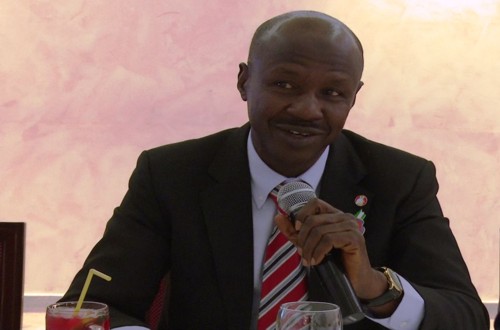Following Senate’s stance against the executive’s position that all categories of nominees are not mandatory to be sent for confirmation, the Presidency has opted for the Supreme Court to seek interpretation of Section 171 of the Constitution, upon which it relied in stating that certain federal appointments should not require the confirmation of the Senate.
It was learnt Sunday night that a team of legal experts put together by the Presidency recommended that it retained its position, while awaiting a judicial pronouncement, “preferably by the Supreme Court, is what will settle the matter”.
PH Spectator recalled that the Senate had on July 4 passed a resolution suspending all issues relating to the confirmation of nominees and urged Acting President Yemi Osinbajo to respect the constitution and laws as they relate to nominees’ confirmation.
However, it was learnt that the Presidency had derive its power from an existing ruling by the current Chief Justice of Nigeria, who once ruled that “wherever and whenever the Constitution speaks, any provision of an Act/Statute, on the same subject matter, must remain silent.”
The presidential advisory committee reportedly stumbled upon this ruling of the Supreme Court on the matter where the current Chief Justice of the Federation, Walter Onnoghen before his elevation as CJN, had ruled in line with the view of the presidency on the matter.
While taking the contentious matter to the apex court, a top government source confirmed in confidence to our correspondent that the Presidency would continue to forward names of its appointees requiring National Assembly’s confirmation to the Senate pending the ultimate judicial interpretation of the matter.
According to the official, “The advisory which affirms the powers of the President to appoint in acting capacity into positions such as the EFCC chairmanship, also notes that in the recent past, the ministerial nomination of Late Prof. Abraham Babalola Borishade (Ekiti State) by President Olusegun Obasanjo was rejected repeatedly by the Senate. In fact, it would be recalled that this particular nomination was presented four times in 18 months before it was eventually confirmed by the Senate.
“Since the time the Acting President spoke and when Senate recently expressed its disagreement we have been sending nominations, including those for INEC and other boards and commissions.
‘’So we are clearly not acting unilaterally based on our own interpretation of the law, even though we believe firmly we are right.
“Here is the point: The Presidency believes that Section 171 is clear that certain appointments do not require Senate consent but it is not already behaving as if its interpretation of the law has become a policy.
“The Presidency is persuaded that its interpretation is the correct one, but we are conscious and aware of the fact that only a proper judicial ruling on the matter would make it a settled policy that sits right with the rule of law.
“That is why we have not stopped sending all manner of nominations to the Senate, most of which the Senate has actually confirmed, even well after the Acting President spoke.”
The source stated that it was inaccurate to say the federal government or the presidency had started to act unilaterally on its own interpretation of Section 171.
“This is because, even after the Acting President, (who spoke when he was Vice President in support of the view of some leading lawyers) the Presidency has continued to send nominations to the Senate both while the President himself was around and while away by the Acting President,” he said.
Aso Villa believes that the refusal by the Senate to confirm the appointment of the acting chairman of the Economic and Financial Crimes Commission, EFCC, Ibrahim Magu, had more to do with politics than with the law.
“The rumblings in the discourse on his (Magu’s) confirmation have more to do with politics than with the law,” the source said.
Before now, many groups had urged the Federal Government or the Senate to approach the Supreme Court to determine who has the power to confirm a nominee.

